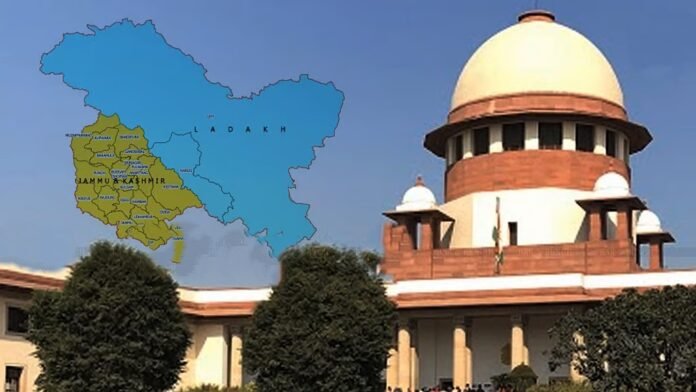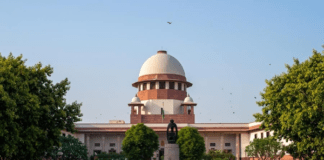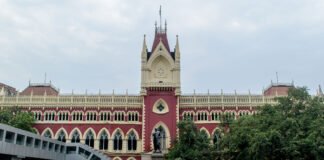Supreme Court set to hear August 14 plea urging restoration of Jammu & Kashmir’s statehood via Miscellaneous Application in Article 370 case.
The Supreme Court bench of CJI B.R. Gavai and Justice K. Vinod Chandran will consider a plea seeking restoration of Jammu & Kashmir’s statehood tomorrow, built upon the Article 370 verdict.
Supreme Court to Consider Plea on J&K Statehood Restoration Tomorrow
The Supreme Court is slated to hear a Miscellaneous Application tomorrow, August 14, 2025, seeking directions to the Union Government to reinstate the statehood of Jammu and Kashmir, which was downgraded to a Union Territory in August 2019. The matter is listed before a two-judge bench led by Chief Justice B.R. Gavai and Justice K. Vinod Chandran. The application has been placed in the earlier settled case: “In Re: Article 370 of the Constitution”, where the apex court had upheld the abrogation of Jammu & Kashmir’s special status.
This application urges the central government to move beyond the Article 370 verdict to restore statehood, a move not directly decided in that judgment.
Background: From Special Status to Union Territory
On August 5, 2019, the Indian Government abrogated Article 370 and split the erstwhile State of Jammu & Kashmir into two Union Territories—Jammu & Kashmir, and Ladakh. The question of statehood became a crucial legal and political battleground. In its pivotal decision, the Supreme Court dismissed the challenge to abrogation, effectively affirming Parliament’s authority to reorganise the region. The Article 370 verdict, now a disposed matter, did not address statehood restoration—a gap now sought to be filled through this Miscellaneous Application before the same bench.
What the Plea Seeks
- Immediate restoration of statehood to the Union Territory of Jammu & Kashmir with all constitutional trimmings, including a legislative assembly and Council of Ministers.
- Direction to the Union Government to formally implement constitutional amendments or legislative mechanisms to effect this restoration.
Stakeholders and petitioners argue that the region’s law-making autonomy and democratic representation depend on reinstating true statehood—not just symbolic titles.
Legal and Political Ramifications
If accepted, the plea could propel a significant political shift—reviving partisan debates over decentralisation, governance, and representation. It also raises questions about the Constitution’s federal structure and Parliament’s powers to change state boundaries or statuses via legislative means.
The court’s decision may hinge on the legal distinction between special status under Article 370 and statehood under the Constitution—two separate legal domains that are often conflated in public discourse.
Additionally, the plea is likely to revive arguments about local democratic empowerment, political accountability, and the constitutional promise of federalism. This hearing provides a rare opportunity for the Supreme Court to directly engage with statehood concerns, independent of Article 370’s abrogation.
What’s Next
The hearing scheduled for August 14, 2025, will be closely watched by political observers, constitutional scholars, and the public at large. Lawyers expect that both sides may reference prior judgments on federalism, Centre‑State relations, and judicial deference to Parliament’s reorganisation powers.
Given the gravity of the issue, the Court might:
- Reserve judgment, asking for more detailed briefs from both the petitioners and the Government.
- If inclined, the bench could seek the Attorney General’s assistance or request central government submissions.
- In any eventual ruling, the Court might limit itself to judicial interpretation, leaving ultimate political or legislative action to Delhi.
Internal Links Embedded Naturally:
Readers interested in federalism and statehood issues can explore The Legal Observer’s national news and insight views. To delve deeper into constitutional and rights‑based reporting, browse through our most popular or connect via our contact page. For expert perspectives, visit The Legal Observer’s YouTube channel.
(External link used: https://www.youtube.com/@thelegalobserver)





